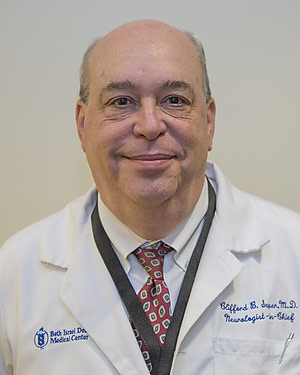
Clifford B. Saper, M.D., Ph.D.
James Jackson Putnam Professor of Neurology and Neuroscience
Harvard Medical School
On September 8, the 2014 Peter C. Farrell Prize in Sleep Medicine was awarded in celebration of the life and work of Clif Saper, whose profound understanding of neuroanatomy and physiology have dramatically transformed our understanding of sleep neurobiology and sleep disorders. Starting with seminal anatomic studies of the hypothalamus and brainstem in the late 1970's, identification of sleep-promoting mechanisms in the 1990's, and application of these ideas to sleep disorders such as obstructive sleep apnea, REM sleep behavior disorder, and narcolepsy in the 2000's, Dr. Saper and his colleagues have unraveled the mechanisms through which the brain switches between wakefulness and sleep. These fundamental, dramatic discoveries have captured the attention of the field, making Dr. Saper the most highly cited sleep researcher ever. His work continues to be referenced in over 2,000 research articles each year and his citation index is a stratospheric 100 plus. In addition, as the Chairman of Neurology at Beth Israel Deaconess Medical Center and the leader of a large research lab, Dr. Saper has provided superb mentoring to dozens of trainees, resulting in one of the most successful promotion records across Harvard Medical School. His notable areas of scientific contribution include:
- Identification of the ventrolateral preoptic area as an essential sleep-promoting cell group.
- Development of the "flip-flop" model of sleep regulation that enables rapid switching between sleep and wake states.
- Mapping the connections of the hypothalamus and its interactions with the autonomic nervous system.
- Delineation of the many connections and functions of the parabrachial nucleus, including its role in producing arousals in obstructive sleep apnea.
- Defining how signals from the circadian pacemaker regulate the timing of sleep and wakefulness.
- Mapping how diffusely projecting arousal systems from the basal forebrain, hypothalamus, and brainstem activate the cortex.
Harvard Medical School
Division of Sleep Medicine
2014 Peter C. Farrell Prize in Sleep Medicine Recipient
See more information about the 2014 Sleep and Health Benefit Dinner.